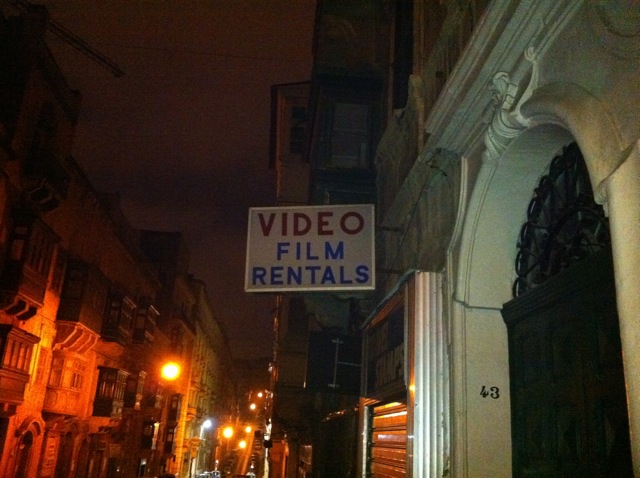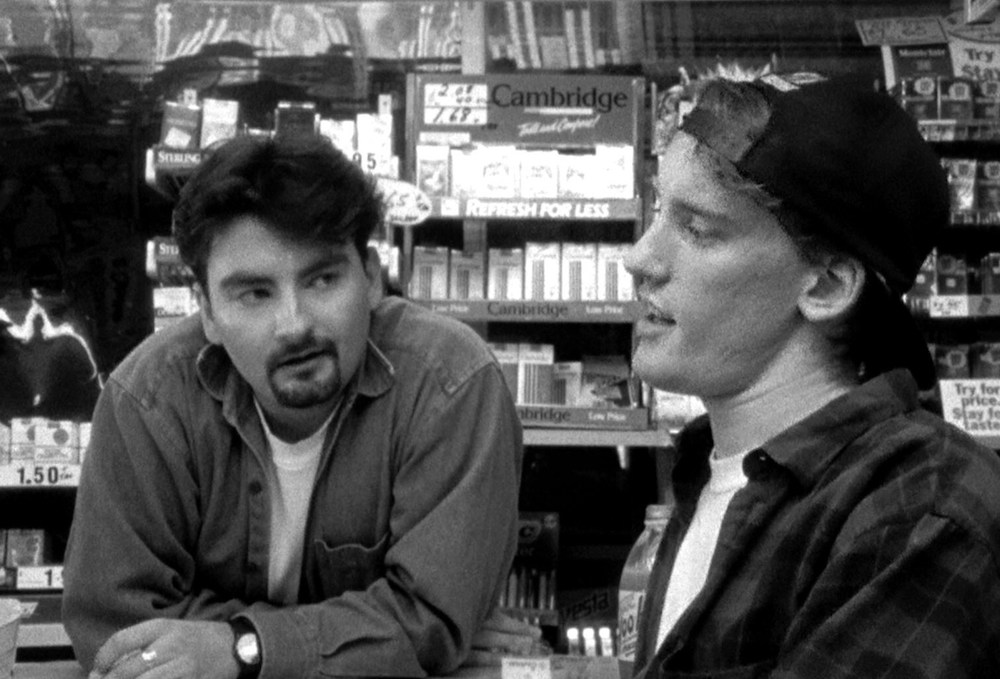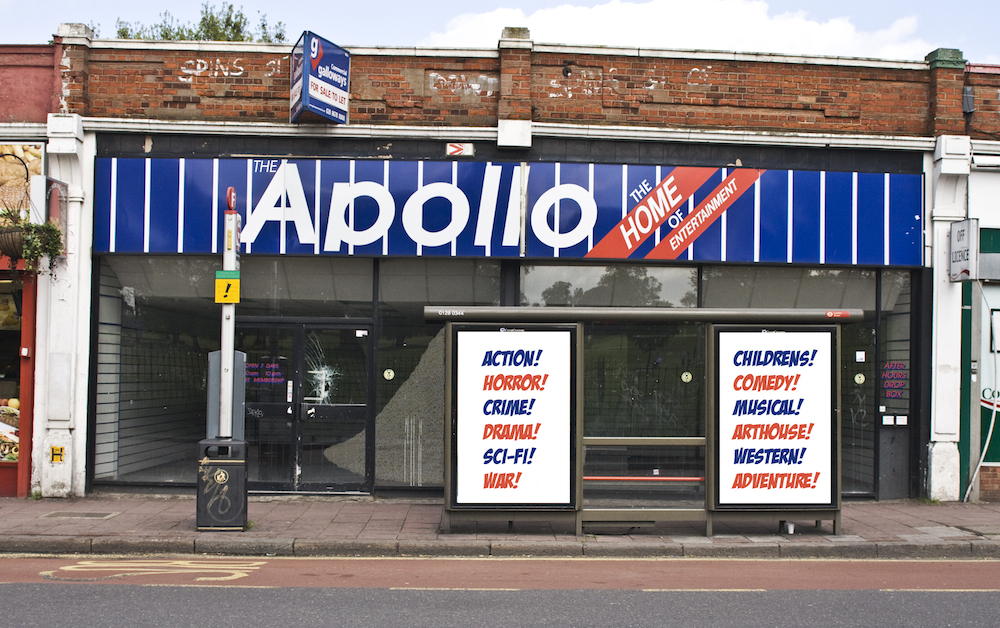
Here at Video Cultures HQ, we’ve been talking about the use of digital technology and the Internet as an archiving tool for video content that has never been released in any high resolution format such as DVD or Blu-Ray. In recent years, a number of ‘link sharing’ websites have sprung up online giving rise to communities of film fans who digitise their old VHS tapes so that their favourite films are not lost to the ravages of time. They then share this material over the Internet with like-minded fans.
What are your thoughts on this practice? Is this simply a flagrant violation of copyright or are there some deeper cultural rituals at work here? After all, who hasn’t discovered a great film or a great album by having a cassette copy thrust into their hands by an eager friend? Are these sorts of communities providing a virtual upgrade on the word of mouth recommendations we all used to receive at our local video shops?
In an age when there is little need to have a conversation in order to rent a movie, download a film on demand or stream a movie from Netflix, should we view communities such as these as people with no respect for the ownership of intellectual property, or as film lovers trying to protect forgotten works from extinction? Can we honestly say that the routine of digitising obsolete VHS tapes results in lost income for the content owner?
The argument is that these kinds of online sharing routines destroy the industry’s ability to make money and therefore damage its ability to make new products. The archivist might suggest that using technology in this way gives the next generation of film fans an opportunity to discover material they would never normally have been exposed to and thus increases the chances of commercial success when older films are eventually remastered and released in a modern format.
Historically, there has been fear in both the video and music industries about home taping on cassette. This was, of course, further transformed by the arrival of digital technology that could produce perfect copies at a low cost. In music, an enormous percentage of all of the albums ever recorded are rotting in vaults because there is no financial incentive to make them available. Could the free market research carried out by this new breed of digital archivist be one of the greatest assets the video industry ever had? Or should film fans seek out those video shops that remain open and instead support them with their custom? Are there even any shops in the UK still carrying obsolete video formats for rental?
In its broadest sense, this is a debate that continues to rage today as media producers try to understand the Internet and its impact upon their existing business models. No doubt the answer lies in the grey area between these two polarities. What are your views on this?
 One cannot underestimate the significance that the video rental shop had for those who grew up in the 1980s and early 1990s. After numerous discussions between the authors about the role of the video shop in our own lives and the decline of the independent video rental industry, we decided to undertake a research project called Video Cultures. Started in July 2010, the main purpose of the project is to collect the memories of those who value the video shop as a key part of their lives and collate materials from the era such as video cover art and promotional ephemera. Whilst it is too early to draw any significant conclusions from the material gathered to date, this article outlines the early stages of the Video Cultures project and includes some of the multimedia content that we have received thus far. It concludes with a short case study that focuses on an interview we conducted with a VHS collector.
One cannot underestimate the significance that the video rental shop had for those who grew up in the 1980s and early 1990s. After numerous discussions between the authors about the role of the video shop in our own lives and the decline of the independent video rental industry, we decided to undertake a research project called Video Cultures. Started in July 2010, the main purpose of the project is to collect the memories of those who value the video shop as a key part of their lives and collate materials from the era such as video cover art and promotional ephemera. Whilst it is too early to draw any significant conclusions from the material gathered to date, this article outlines the early stages of the Video Cultures project and includes some of the multimedia content that we have received thus far. It concludes with a short case study that focuses on an interview we conducted with a VHS collector.
 During the era of renting VHS tapes from video shops, I would often reserve a film to ensure that I could see it on a particular day. Usually this involved visiting the shop at an earlier time and making arrangements with the owner. Fortunately, there was never a charge for this service. My local video shop was pretty small and managed its catalogue of tapes on paper rather than with a computer. This changed in later years with the advent of affordable database software, but throughout the late 1980s, reserving a tape was typically done in a large paper ledger. As a young film fan, the experience allowed me to vividly imagine what it would be like to borrow money from Ebeneezer Scrooge.
During the era of renting VHS tapes from video shops, I would often reserve a film to ensure that I could see it on a particular day. Usually this involved visiting the shop at an earlier time and making arrangements with the owner. Fortunately, there was never a charge for this service. My local video shop was pretty small and managed its catalogue of tapes on paper rather than with a computer. This changed in later years with the advent of affordable database software, but throughout the late 1980s, reserving a tape was typically done in a large paper ledger. As a young film fan, the experience allowed me to vividly imagine what it would be like to borrow money from Ebeneezer Scrooge. This post was contributed by
This post was contributed by  This post was contributed by
This post was contributed by  Thought for the day: Any ideas as to why so many video shops had Greek inspired names? In Birmingham we had Apollo Video (was this part of the same chain who now own Apollo Cinemas?), Olympia Video and, perhaps my favourite, Aphrodite Video. Surely this cannot be a coincidence? Were there any other shops in the UK that had similar names?
Thought for the day: Any ideas as to why so many video shops had Greek inspired names? In Birmingham we had Apollo Video (was this part of the same chain who now own Apollo Cinemas?), Olympia Video and, perhaps my favourite, Aphrodite Video. Surely this cannot be a coincidence? Were there any other shops in the UK that had similar names?